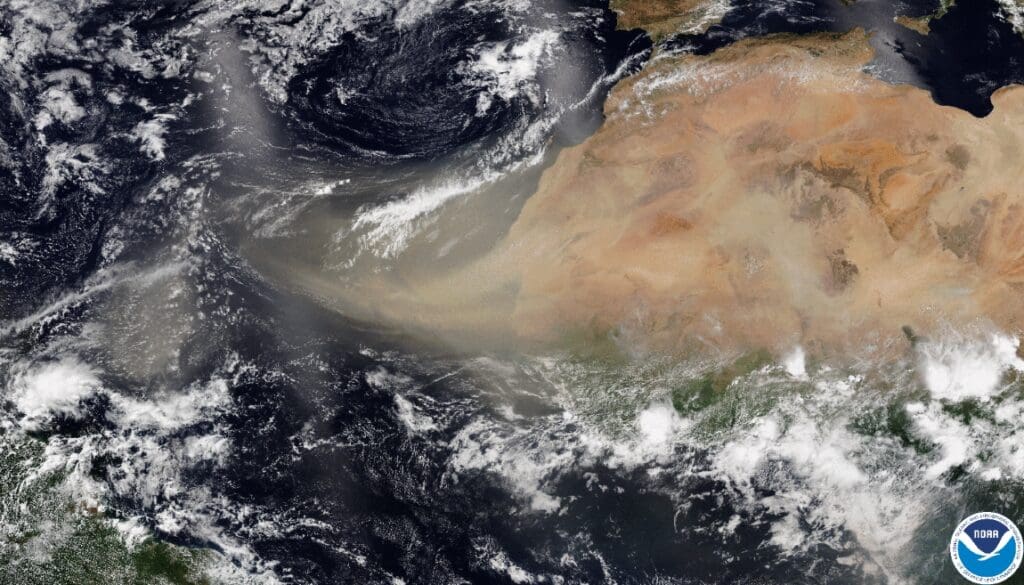By Kuan-Wei Chen, McGill University and Hoda Asgarian, Bond University, The Conversation
In April, the European Court of Human Rights ruled in favour of a group of seniors who alleged that the Swiss government’s failure to meet climate change mitigation targets is having an adverse impact on their health, well-being and quality of life.
This landmark decision by the highest human rights court in Europe confirms not only that climate change is intimately linked to human rights, but effectively holds all European governments accountable to adopt more rigorous measures to combat climate change.
Clear obligations
It is well documented that runaway carbon dioxide emissions, deforestation, resource depletion and the acidification of the oceans have contributed to increased heatwaves and megadroughts, more frequent and violent storms and unseasonable precipitation.
Unpredictable weather patterns and swings in temperature disrupt ecosystems, wildlife and threaten agriculture and food production.
Simply put, climate change poses clear threats to human life by exacerbating “existing medical conditions such as cardiovascular, respiratory and kidney conditions or mental illnesses and stress.”
The 1994 United Nations Framework Convention on Climate Change is a global commitment to stabilize greenhouse gas emissions so as to stem dangerous anthropogenic effects on the world’s climate.
The 2015 Paris Agreement commits governments to limit global warming to 2 C above pre-industrial levels through progressively ambitious climate action plans. However, by 2030 the world may be faced with a temperature rise of close to 3 C as countries are still not doing enough to cut carbon emissions.
According to the independent Climate Action Tracker, the vast majority of countries are insufficiently living up to their global commitments.
Global inaction has scientists around the world feeling “hopeless and broken” and “scared” as governments fail to act despite clear scientific evidence that climate change will have catastrophic consequences.
The Climate Action Tracker has rated Canada’s efforts as “highly insufficient” and inconsistent with Paris commitments citing its state-sanctioned expansion of pipelines, lackluster climate target and ineffective policies and climate finance.
Taking legal action
The United Nations High Commissioner for Human Rights has long underlined that climate change threatens a variety of human rights, including the right to life, food, health, housing, culture and development. In particular, marginalized populations — including children, girls and women, migrants, people with disabilities and Indigenous peoples — are disproportionately impacted by climate change.
In the face of government inaction on climate change, there has been a rise in climate litigation.
In the landmark Urgenda case, the Supreme Court of the Netherlands affirmed there is an obligation to take more effective action to prevent dangerous climate change to protect the life and well-being of all citizens, including those not yet born.
Children across the globe have also been taking legal action against governments.
A case in Canada filed by children and youths alleged that climate inaction will expose them and future generations to physical and psychological harm in violation of several sections of the Canadian Charter of Rights and Freedoms. While the case eventually failed, it also set an important example.
At the international level, Colombia and Chile have requested the Inter-American Court of Human Rights to clarify obligations under the frame of international human rights law with regard to the climate crisis. Meanwhile, several island states (including Vanuatu) have requested both the International Tribunal for the Law of the Sea and the International Court of Justice to elaborate on the obligations of States to ensure the protection of the climate system for present and future generations.
While these actions may seem small in the face of the crisis, they all present enormous opportunities to correct inaction and set new global precedent.
Continuing challenges
Climate change is one of the defining challenges of our time.
If unaddressed, climate change will cause untold ecological disaster and human suffering — and even threaten international peace and security. The consequences of warmer oceans and uncontrolled gaseous emissions transcend borders, ethnicities and political divides to affect all.
The recent European decision is one of a number of climate change cases that are currently ongoing. Though climate litigation can be costly and time-consuming, such cases underline the powerful role that individuals, young and old alike, can play to hold decision-makers to account and prompt greater action on climate change.
Governments must be reminded that they shoulder the twin responsibilities to both fulfil environmental commitments and to protect human health and human rights. In light of the pressing climate crisis and countdown to 2030, concrete action and change cannot come soon enough.
This article is republished from The Conversation under a Creative Commons license. Read the original article.
Featured image by jcomp | Freepik.com




